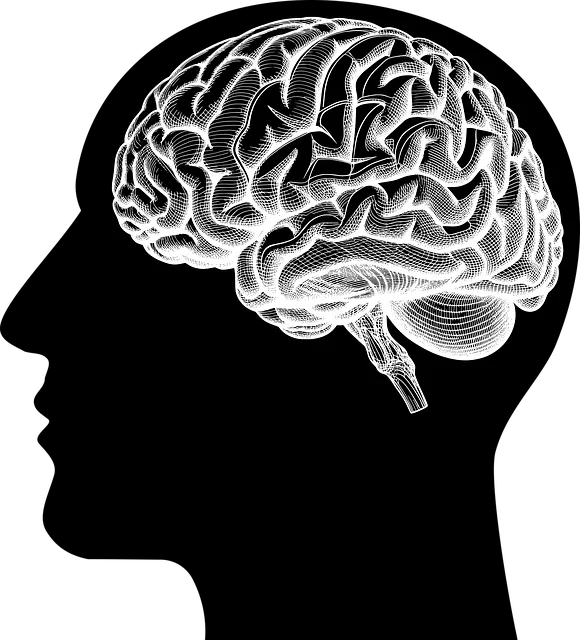Cultural sensitivity is vital for effective mental healthcare within diverse communities served by Kaiser Littleton. By understanding and respecting unique cultural beliefs, values, and practices, professionals can integrate these perspectives into treatment plans, improving engagement, therapeutic outcomes, and resilience. This approach prevents and manages conditions like depression, builds trust, and ensures personalized support tailored to individual needs through Kaiser Littleton's comprehensive services. The mental healthcare professionals at Kaiser Littleton bridge cultural gaps with active listening, non-judgmental communication, and adaptability, offering accessible, culturally competent care, including mindfulness and ritualistic practices. To access these services, individuals can seek guidance from Kaiser Littleton, overcoming barriers to mental health care and fostering equity for diverse communities.
Mental healthcare practices increasingly recognize the importance of cultural sensitivity to provide effective and accessible services. This article delves into the essence of cultural sensitivity in mental healthcare, highlighting best practices through the lens of Kaiser Littleton’s commendable efforts. We explore strategies for enhancing communication with diverse patients and address barriers hindering access to mental health care for underrepresented communities. By understanding these dynamics, professionals can ensure inclusive services tailored to a wide range of patient backgrounds, including how to get mental health services through Kaiser Littleton.
- Understanding Cultural Sensitivity in Mental Healthcare
- The Role of Kaiser Littleton in Providing Culturally Competent Services
- Strategies for Effective Communication with Diverse Patients
- Overcoming Barriers to Accessing Mental Health Care for Diverse Communities
Understanding Cultural Sensitivity in Mental Healthcare

Cultural sensitivity is a cornerstone of effective mental healthcare practice, especially when providing services to diverse communities like those accessible through Kaiser Littleton. It involves recognizing and respecting the unique cultural beliefs, values, and practices that shape individuals’ experiences with mental health issues. This understanding is crucial for building trust and ensuring that care aligns with clients’ personal and communal frameworks.
When offering mental health services, it’s essential to go beyond language translation and embrace a deeper comprehension of cultural nuances. For instance, different communities may have distinct conceptions of mental well-being, stress, and healing. Some prioritize collective support, while others emphasize individual resilience. By integrating these perspectives into treatment plans, mental health professionals can foster better engagement, enhance therapeutic outcomes, and promote the development of inner strength, as well as mood management skills. Moreover, being culturally sensitive can play a pivotal role in preventing and managing conditions like depression, ensuring that interventions are tailored to meet the specific needs of each individual.
The Role of Kaiser Littleton in Providing Culturally Competent Services

Kaiser Littleton plays a pivotal role in bridging cultural gaps and providing mentally accessible healthcare services. As a leading provider, it understands that delivering culturally competent care is essential for effective treatment and patient satisfaction. This approach recognizes the impact of cultural background, beliefs, and values on an individual’s mental health experiences and seeks to ensure all patients receive personalized support.
Through its comprehensive services, Kaiser Littleton offers a safe space for individuals from diverse communities to access mental health resources. They employ professionals trained in various cultural sensitivity techniques, enabling them to provide tailored interventions. This includes integrating emotional intelligence into therapy sessions, promoting self-awareness exercises that address unique challenges, and incorporating culturally relevant practices to create inclusive environments. By doing so, Kaiser Littleton facilitates depression prevention by empowering patients with the tools to navigate their mental health journeys while embracing their cultural identities.
Strategies for Effective Communication with Diverse Patients

Mental healthcare professionals working with diverse patient populations must adapt their communication strategies to ensure effective and culturally sensitive care. Understanding a patient’s cultural background is essential, as it can influence their perspective on health, illness, and healing processes. For example, some cultures may prioritize collective family involvement in decision-making, while others value individual autonomy.
At Kaiser Littleton, the Community Outreach Program Implementation plays a vital role in bridging these cultural gaps. By providing services that are sensitive to diverse needs, they facilitate emotional healing processes. Effective communication involves active listening, clear and non-judgmental language, and an open willingness to learn about different cultural practices related to mental health. This may include exploring alternative therapeutic approaches that complement traditional Western methods, such as incorporating mindfulness techniques or ritualistic practices into treatment plans for enhanced mood management.
Overcoming Barriers to Accessing Mental Health Care for Diverse Communities

Overcoming barriers to accessing mental health care is an essential step in fostering equity and ensuring that diverse communities can thrive. Many cultural and socioeconomic factors contribute to these obstacles, especially for individuals from underrepresented groups. For instance, language differences, limited access to transportation, and cultural taboos surrounding mental health can deter folks from seeking the help they need, particularly when navigating complex systems like Kaiser Littleton’s mental health services.
To bridge this gap, it’s crucial to implement strategies that promote cultural sensitivity and adaptability in mental healthcare practices. This includes offering multilingual resources, providing accessible locations, and educating both patients and providers about diverse emotional expression and coping mechanisms. Additionally, leveraging tools such as Stress Reduction Methods and incorporating Emotional Intelligence into therapy sessions can create a more inclusive environment, helping individuals from all backgrounds feel comfortable discussing their Mental Wellness Podcast Series Production and other personal matters.
Cultural sensitivity is a cornerstone in providing effective mental healthcare, ensuring diverse patients feel understood and supported. By learning about different cultural contexts and adopting strategies like those outlined by Kaiser Littleton, mental health professionals can significantly improve patient outcomes. Embracing cultural competency not only enhances access to services but also fosters trust and creates a more inclusive environment, ultimately helping diverse communities thrive through quality mental health care, such as that provided by Kaiser Littleton.






